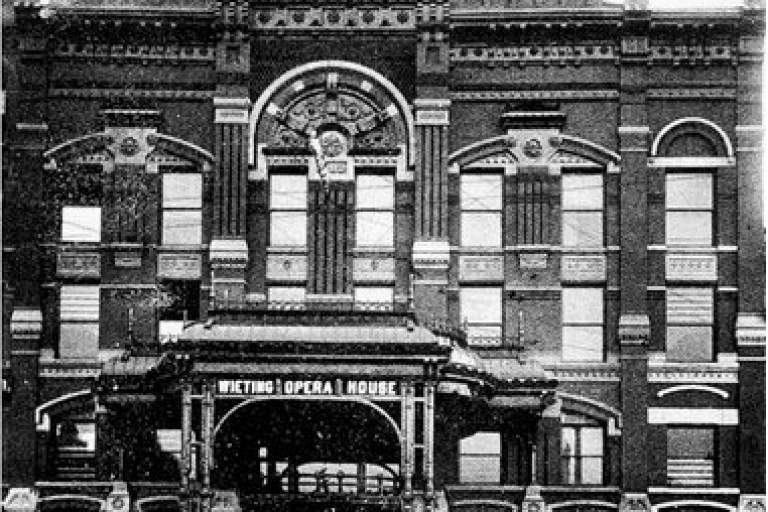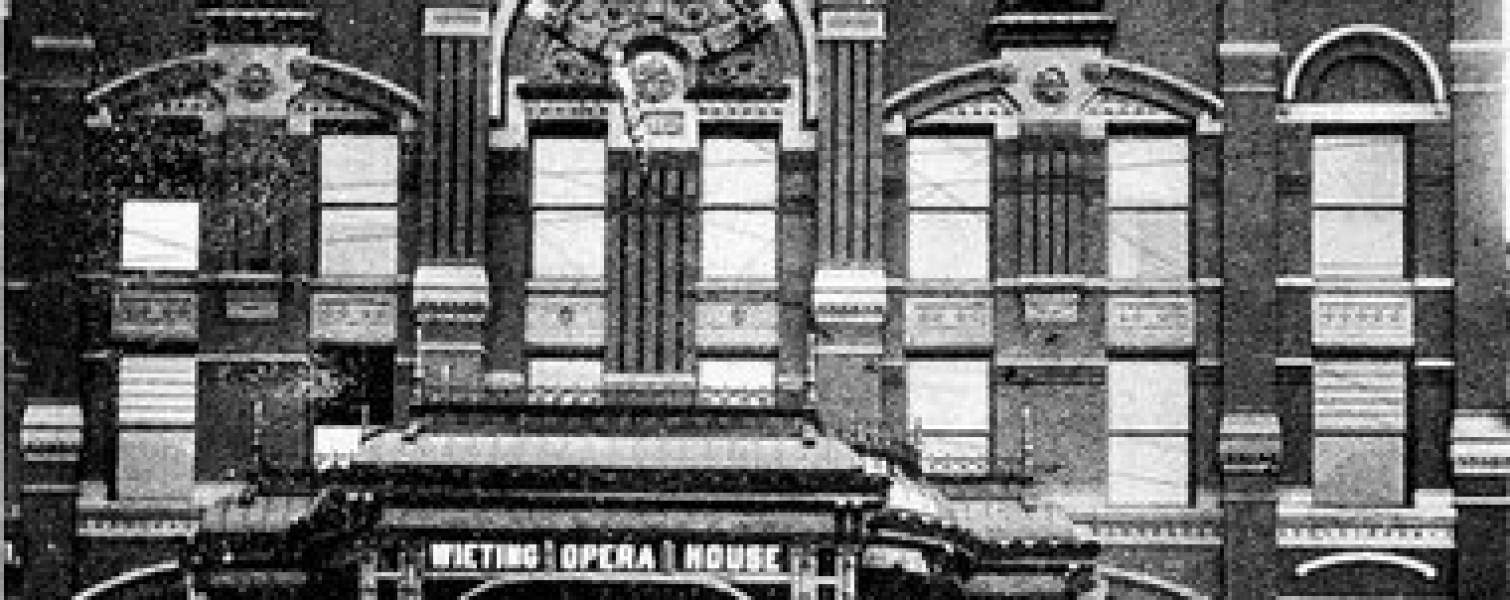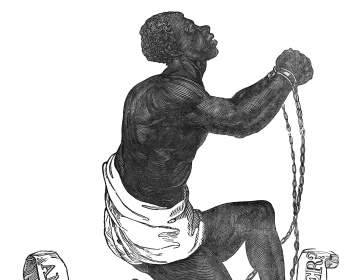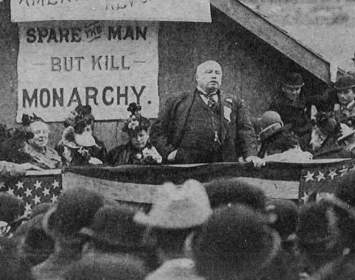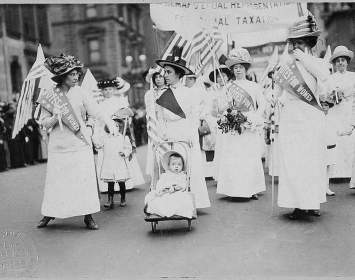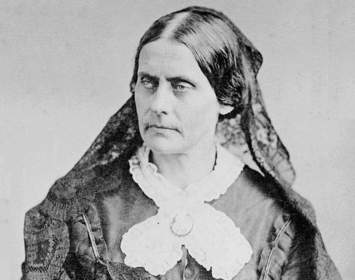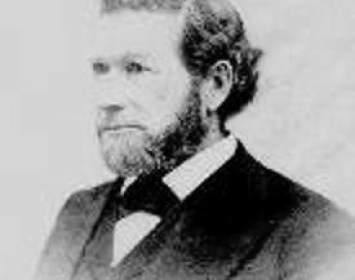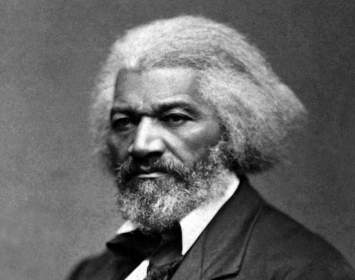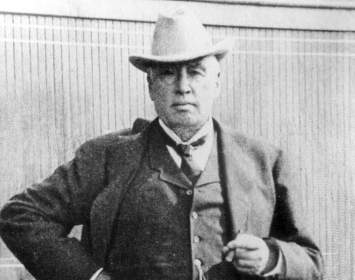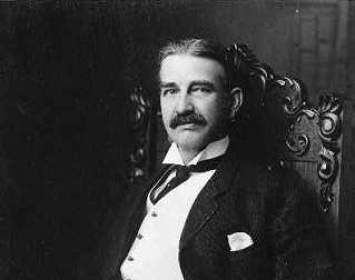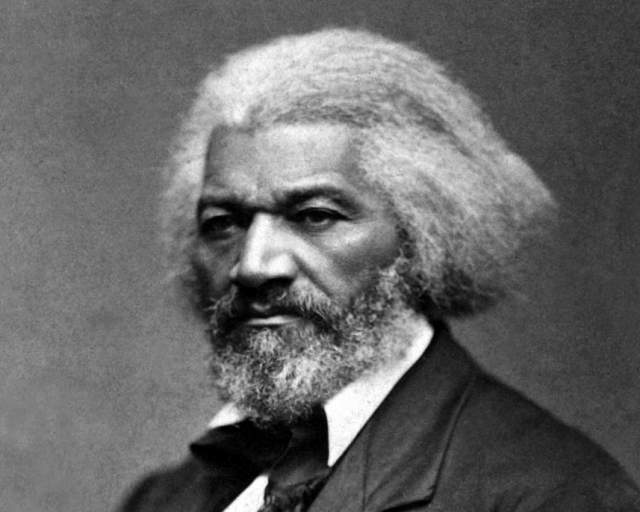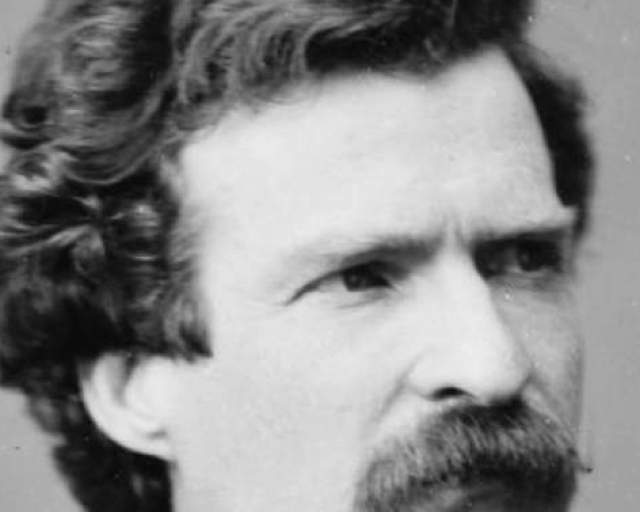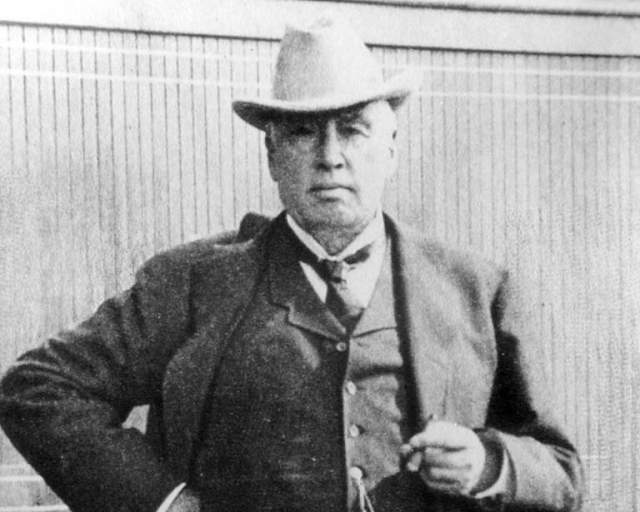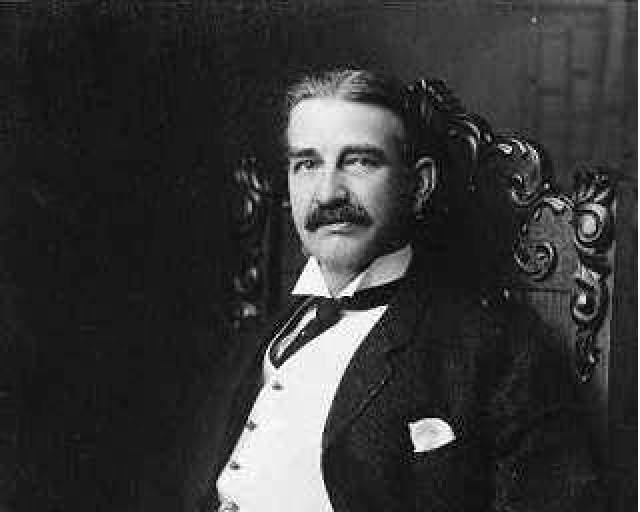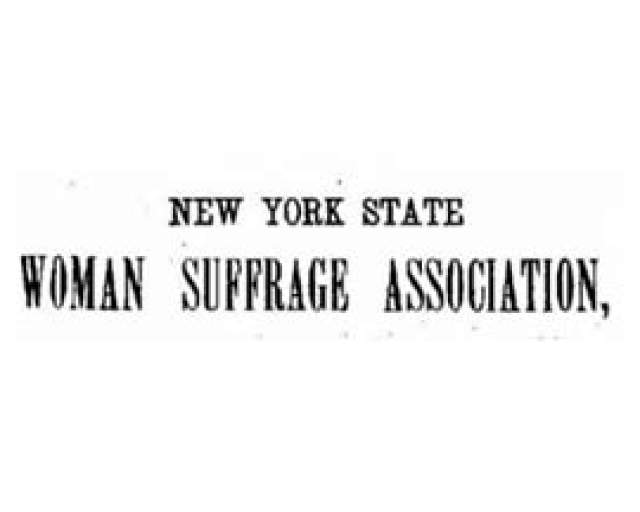The premier performing arts venue of nineteenth-century Syracuse, Wieting Opera House played much the same role in that city as did Corinthian Hall in Rochester.
On November 14, 1861, Frederick Douglass gave a controversial lecture here urging that slaves be freed en masse to ensure a Union victory in the Civil War. Faced with the possibility that protestors opposed to Douglass would storm the Opera House, owner John Wieting and Syracuse Mayor Charles Andrews resolved that the speech would go forward. Scores of police officers backed by soldiers from the Second Onondaga Regiment protected the Opera House, and the lecture proceeded without incident.
Robert Green Ingersoll delivered five lectures here. On November 13, 1877, he gave his popular political lecture "The Liberty of Man, Woman, and Child." On February 22, 1878, he presented his popular and controversial lecture "Ghosts." On December 13, 1880, he delivered his controversial lecture "What Must We Do to Be Saved?". On February 25, 1896, he gave his controversial lecture "The Foundations of Faith." On January 4, 1898, he presented his controversial lecture "Why I Am an Agnostic."
On October 26–27, 1878, Wieting Opera House hosted the second annual national convention of the National Liberal League. On February 14, 1883, Matilda Joslyn Gage and her husband attended a return engagement of the play The Maid of Arran, the first successful musical by her son-in-law L. Frank Baum.
On December 6, 1871, Mark Twain trod the Wieting stage to deliver his lecture "Artemus Ward," a tribute to an earlier American humorist who was among his inspirations.
On November 14-16, 1892, the Wieting hosted plenary sessions of the twenty-fourth annual convention of the New York State Woman Suffrage Association. Speakers included Susan B. Anthony, Anna Howard Shaw, Lillie Devereux Blake, and Mary Seymour Howell. Significant addresses were delivered by the nationally prominent suffragists Lucy Stone and Carrie Chapman Catt. In addition, freethinker and woman's rights activist C. D. B. Mills, father of Syracuse suffrage leader Harriet May Mills, took part in a panel discussion on suffrage featuring male and female participants.
The Building(s) and Site. A building called Wieting Hall was built on this site in 1851 by physician and medical lecturer John Manchester Wieting (1817-1888). It was lost to fire in 1856. It was immediately rebuilt as Wieting Opera House. Circa 1880, the new Syracuse Telephonic Exchange offered its 36 subscribers an option to "listen by telephone to all the concerts at the Wieting Opera House." The 1857 opera house burned again in 1881; in 1882, it was rebuilt as a theater seating more than 1,200. This burned in 1896. It reopened in 1897, having expanded to seat 2,140 persons. It was demolished in 1930. (In the course of his five lectures, Robert Ingersoll performed in the 1856, 1882, and 1897 "incarnations" of the Wieting.)
The Wieting Opera House site is now occupied by a nondescript convention venue.
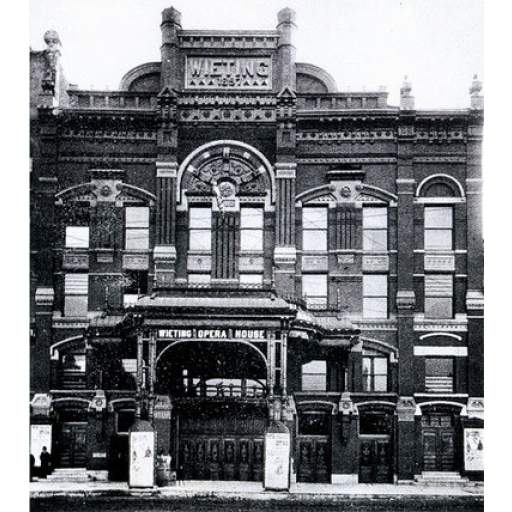
Wieting Opera House
Photograph of the front elevation of the Wieting Opera House.
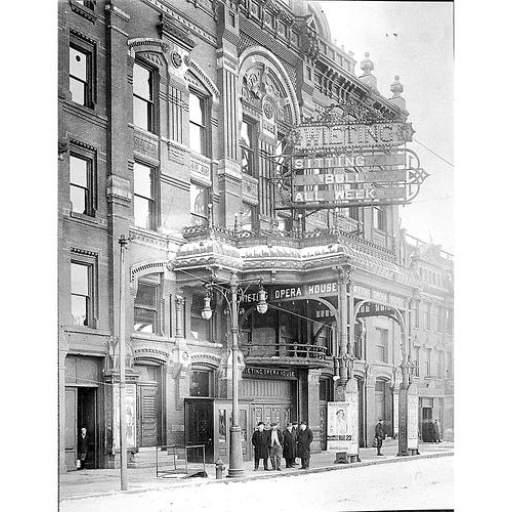
Wieting Opera House
The Wieting Opera House in the late nineteenth century.
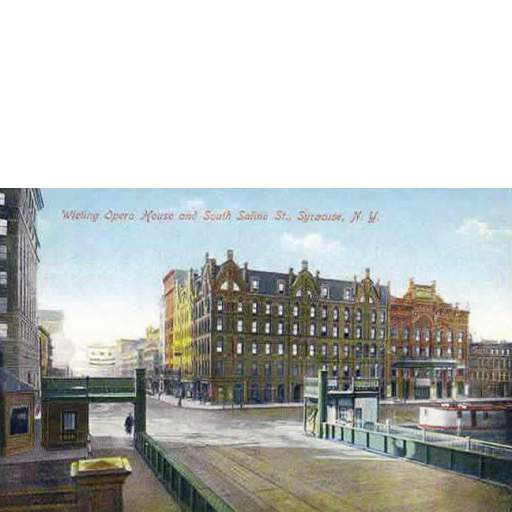
Wieting Opera House in 1913
This 1913 postcard depicts the Wieting Opera House (reddish building, right) and the block on which it stood.
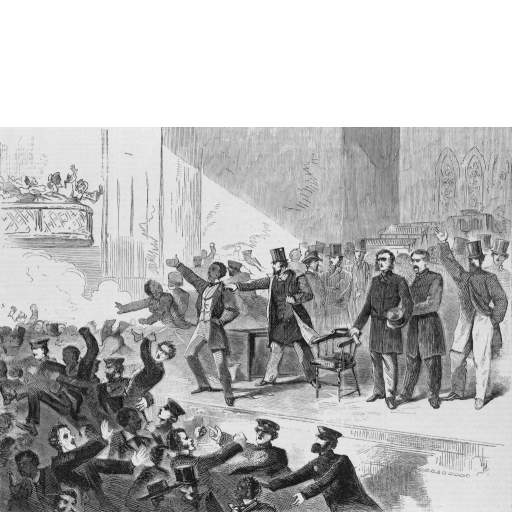
Abolitionist Lecture
A contentious abolitionist lecture being broken up by police. While this image is not specific to the Wieting Opera House, its stage was the scene of many controversial abolitionist lectures.
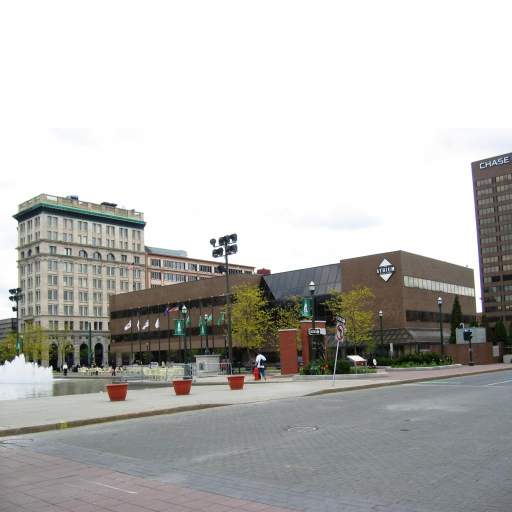
The Atrium
The Wieting Opera House site is now occupied by the Atrium, a hotel and office/convention center. Most of the offices are now occupied by government agencies and community organizations.
Associated Historical Events
Mark Twain Gives "Artemus Ward" Lecture in Syracuse
December 6, 1871
Robert Green Ingersoll Gives "Ghosts" Lecture in Syracuse
February 22, 1878
Second National Liberal League Convention
October 26–27, 1878
Twenty-Fourth NY State Suffrage Convention
November 14 –16, 1892
